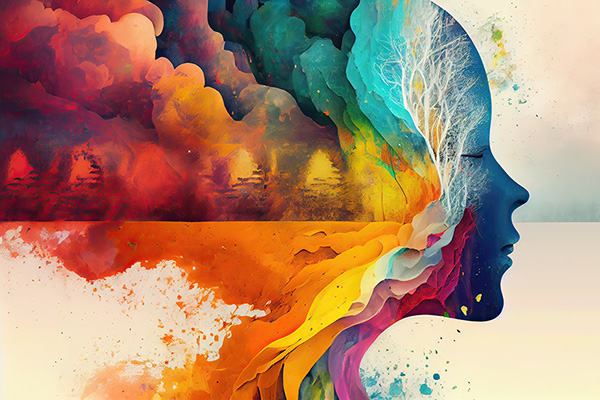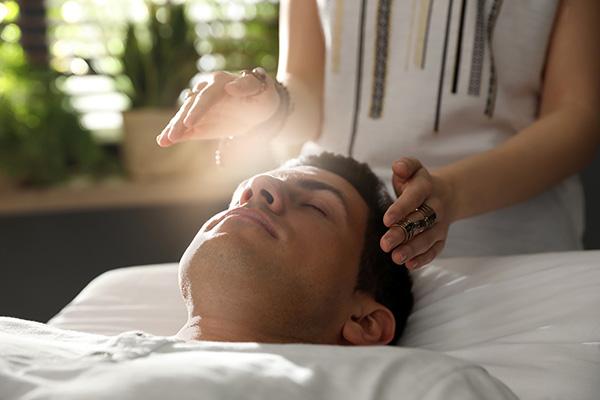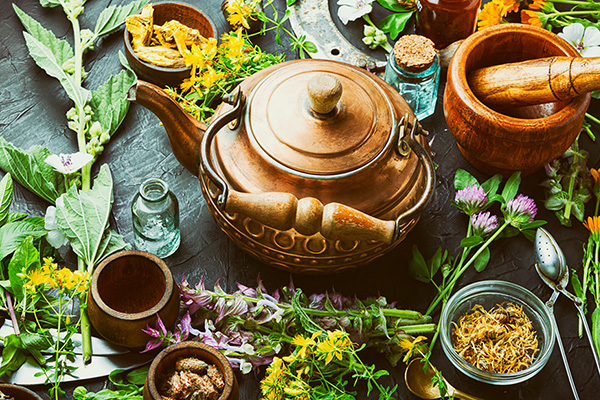integrative medicine
Exploring The Benefits Of Reiki Healing
 Reiki healing offers a variety of potential benefits for both your physical and mental well-being. Reiki teaches that when our life force is high, we feel happy, radiant and vital, and when it is low, we feel sick, drained and stressed.
Reiki healing offers a variety of potential benefits for both your physical and mental well-being. Reiki teaches that when our life force is high, we feel happy, radiant and vital, and when it is low, we feel sick, drained and stressed.
Reiki is a form of energy healing in which practitioners use their hands to channel life force energy to the recipient. This universal energy or life force flows through all living things and is called ki in Japanese. The concept is similar to qi (or chi) in Chinese culture and prana in Indian culture.
A qualified Reiki healer is trained to channel healing energy to balance the flow of your life force energy and return you to a state of harmony and vitality.
Reiki has grown in popularity in recent years. Once viewed with skepticism by mainstream medicine, there’s a growing openness to complementary therapies, and Reiki is seen as a gentle and relaxing practice.
In today’s fast-paced world, stress is a major concern. Reiki’s reputation for promoting relaxation and reducing stress makes it attractive to many. Celebrities like Angelina Jolie, Nicole Kidman, Sandra Bullock and Gwyneth Paltrow and any mothers have spoken openly about their use of Reiki, giving it a touch of glamour and social validation.
Interesting Facts You May Not Know About Reiki
 People all over the world are turning to Reiki for its healing power, and it is now even being used in the medical field as a complementary therapy for the treatment of physical, emotional and mental illnesses.
People all over the world are turning to Reiki for its healing power, and it is now even being used in the medical field as a complementary therapy for the treatment of physical, emotional and mental illnesses.
Reiki is a spiritual philosophy and energy healing practice that was developed in Japan in the early 20th century by founder Mikao Usui.
Usui was a Tendai Buddhist whose lifelong quest for spiritual knowledge and healing techniques took him on a journey through many religious and spiritual traditions, including Shintoism, Buddhism, and Christian teachings, as well as the study of martial arts.
The most pivotal moment in Usui’s life occurred on Mount Kurama, a sacred mountain north of Kyoto. After 21 days of fasting and meditation, Usui had a profound spiritual experience of enlightenment that gave him the knowledge and ability to channel healing energy.
This experience led to the development of a healing system he called “Reiki,” which means “universal life energy” or “spiritual energy.” It’s based on the wisdom that “universal energy” can be channeled to support the body’s natural healing processes. Reiki is an extremely powerful energy, yet a remarkably gentle form of healing.
The Modern Practice Of Spiritual Healing
 In a world driven by science and technology, the value of our spiritual health is rarely recognized or appreciated these days, yet it is an essential aspect of our holistic health and well-being.
In a world driven by science and technology, the value of our spiritual health is rarely recognized or appreciated these days, yet it is an essential aspect of our holistic health and well-being.
The truth is that spiritual healing has been practiced since the beginning of time to promote physical, emotional, mental and spiritual well-being. Our ancestors were much wiser in this regard. They had a holistic view of health and wellness that not only focused on the physical and mental, but also honored the spiritual or metaphysical aspects of our existence.
In ancient Egypt, for example, illness was treated as a battle between good and evil, and magical remedies were used in addition to herbal medicines. In ancient Greece, holism underpinned everything, and the soul, mind, and body were considered one.
In Traditional Chinese Medicine, a holistic system practiced for at least 23 centuries, healing is achieved by balancing the yin-yang life force energies that permeate everything in the universe. In the indigenous healing traditions of Native America, holistic health is represented by the four quadrants of the ‘medicine wheel’ or ‘sacred circle,’ namely the physical, emotional, mental, and spiritual states of being.
In Christianity, spiritual healing is documented with many references to the healing power of faith and prayer. The Bible also refers to the spiritual gift of healing, and there are several accounts of Jesus performing miraculous healings. In Hinduism, Ayurveda is a five-thousand-year-old Vedic system of medicine that seeks to restore the balance between the body, mind, and spirit.
The Basics Of Reiki
 Reiki is popular concept in modern spirituality, metaphysics and energy healing. It is therefore good for anyone interested in these fields to have a basic understanding of this technique to engage in discussions with likeminded people in a meaningful way.
Reiki is popular concept in modern spirituality, metaphysics and energy healing. It is therefore good for anyone interested in these fields to have a basic understanding of this technique to engage in discussions with likeminded people in a meaningful way.
The term reiki is a combination of two Japanese words. Rei means ‘divine wisdom’ or ‘divine power,’ and ki means ‘life force energy’ or ‘vital human energy.’ Reiki is therefore a ‘divinely empowered life force.’
Reiki, or rather the system of Reiki, was developed in Japan a century ago by a Buddhist monk known as Mikao Usui. He was a renowned spiritual man who dedicated his life to being of service to others. While seeking spiritual awakening on Mount Kurama, north of the Japanese city of Kyoto, he was divinely inspired with the gift of Reiki. It was introduced to the United States in the late 1930s by Hawayo Hiromi Takata, a Japanese-American woman who received training in Reiki in Tokyo and became a master practitioner.
Although it is more commonly known only as a form of energy healing, true Reiki is in fact a comprehensive spiritual practice and a conscious lifestyle. Yes, it involves the healing of the mind and body, but it also proposes living in total peace with oneself, and being aware of your own unique purpose and spiritual light within. The system of Reiki seeks to remove the layers of fear, worry and attachments that conceal our innate brightness of being.
Developing Your Herbal Intuition
 Herbal medicine is becoming increasingly popular, and many people are increasingly turning to herbalism as a healthcare supplement, or even a substitute to conventional pharmaceutical medicine. Plants, flowers, and herbs all have unique energetic qualities that make them suitable for various purposes. They are alive and respond to their environment and how they are treated in the same way humans do.
Herbal medicine is becoming increasingly popular, and many people are increasingly turning to herbalism as a healthcare supplement, or even a substitute to conventional pharmaceutical medicine. Plants, flowers, and herbs all have unique energetic qualities that make them suitable for various purposes. They are alive and respond to their environment and how they are treated in the same way humans do.
When we think of herbs, we tend to narrowly categorize them according to the medical conditions they can be used for, or what aspect of our health and wellness they can improve. However, like people, herbs are much more complex and multi-faceted, and have many uses and applications, alone or in combination with other herbs.
To obtain the most benefit from any herb, we need to take the time and have patience to truly get to know the herb. When you meet someone for the first time at a social event, would you diminish the other person’s true worth by instantly deciding they have only one useful trait or redeeming quality, and leave it at that? Taking the time to get acquainted with a particular herb is much like getting to know someone in an intimate friendship.
Selecting herbs to work with or draw upon for healing is a highly intuitive process. The appearance, aroma, taste, texture, and energy vibration of the ideal herb for a specific purpose must speak to us mind, body, and soul. They convey a distinct energy signature and frequency of healing that the intuitively aware user will innately know is best to use at that time.